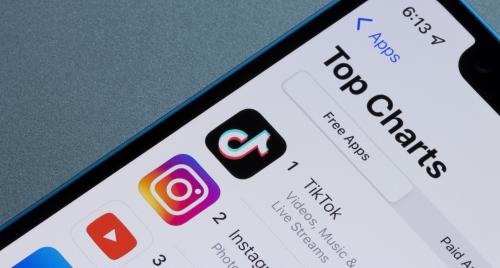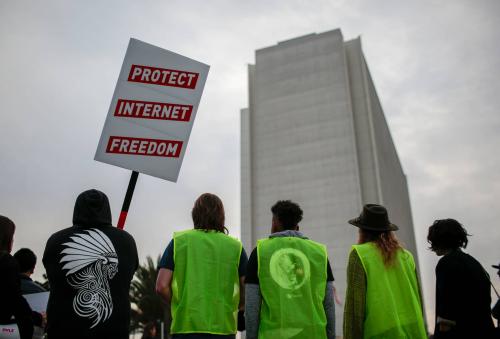As consumers purchase more digital goods and services online, some governments are looking to capture tax revenue from these sales. The city of Chicago recently announced a plan to tax “electronically delivered amusements,” which includes streaming services such as Netflix and Spotify, and “nonpossessory computer leases,” which covers Amazon Web Services and Lexis Nexis. While several cities and states levy taxes on physical products purchased online, Chicago is the first major city to impose a so-called “cloud tax” on digital services. In the past, municipalities have collected sales tax on physical media like video games and albums. Now a significant percentage of media is entirely digital and stored online. The decision to charge Chicagoans an additional 9 percent tax for digital services raises questions about how to tax cloud-based products.
Taxing e-commerce
In theory, an online sales tax would apply wherever goods or services were consumed. E-commerce for physical goods has existed for over a decade, and efforts to tax online purchases have existed for almost as long. Currently, the United States has no national sales tax regime for online purchases. Taxes are levied at the state level, and only where a website has a physical presence, such as an office or a warehouse. The proposed Marketplace Fairness Act would allow states to collect sales tax on retailers beyond state borders. Since a streaming service or a database delivers no physical goods, it can locate anywhere in the world with electricity and an Internet connection. While tax jurisdictions are tied to territorial boundaries, online services have long been agnostic to geography.
Taxing digital services is problematic because the Internet enables business models that have no brick-and-mortar analogue. For instance, a “cloud tax” would not reach free services like the ad-supported version of Spotify. Seventy-three percent of customers use the free version of the service rather than paying for a subscription, yet the law would only allow a tax for paying customers. Ad-supported business models for digital services make it difficult to assess the economic value to be taxed. The rideshare service Uber has encountered related issues when negotiating tax rates in cities where it operates. Though many cities tax cab fares, they are struggling to fit Uber into existing tax categories. Chicago’s solution appears to be stretching the definition of old tax codes to fit new digital services.
Legal issues
There is also the question about whether it would be legal for cities and states to implement a “cloud tax.” Federal laws such as the 1996 Telecommunications Act and the 1998 Internet Tax Freedom Act (ITFA) may prohibit this kind of taxation. ITFA forbids Internet-specific taxes, and could be used to mount legal opposition to the “cloud tax” by impacted businesses. Cloud-based companies will surely attack the legality of “cloud taxes” before other cities follow Chicago’s lead.
As more economic activity occurs online, governments will seek ways to tax that activity. However, technology often proves to be a moving target for any type of regulation. By the time a legal category is codified, businesses and consumers have already moved on to the next thing. Applying existing taxes to new categories of services, if done in a haphazard manner, can create uncertainty that stifles innovation. Governments must modify their tax codes to account for the rapid pace of change. Creating a technology-neutral tax code for digital services would both increase tax revenues for governments and reduce uncertainty for innovative businesses.



Commentary
Chicago targets streaming services with “cloud tax”
July 14, 2015